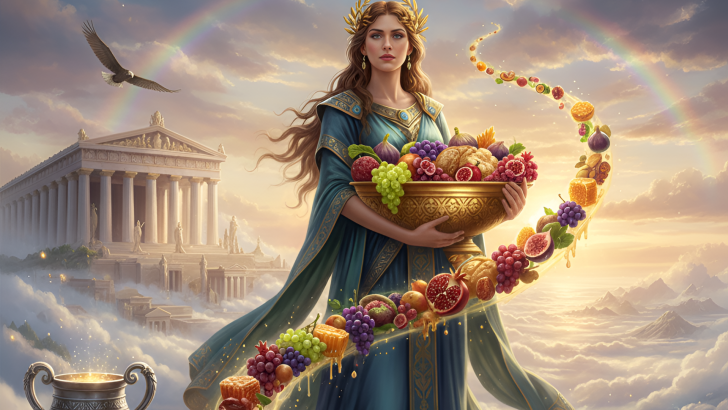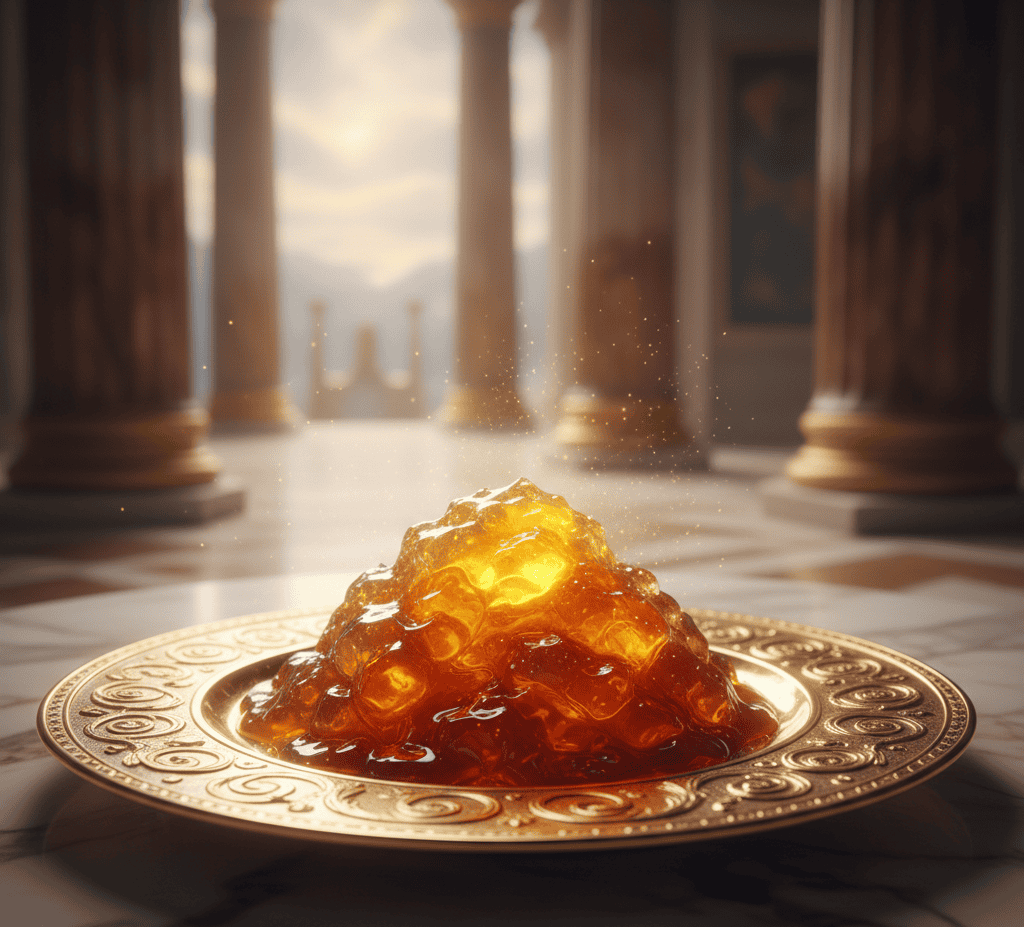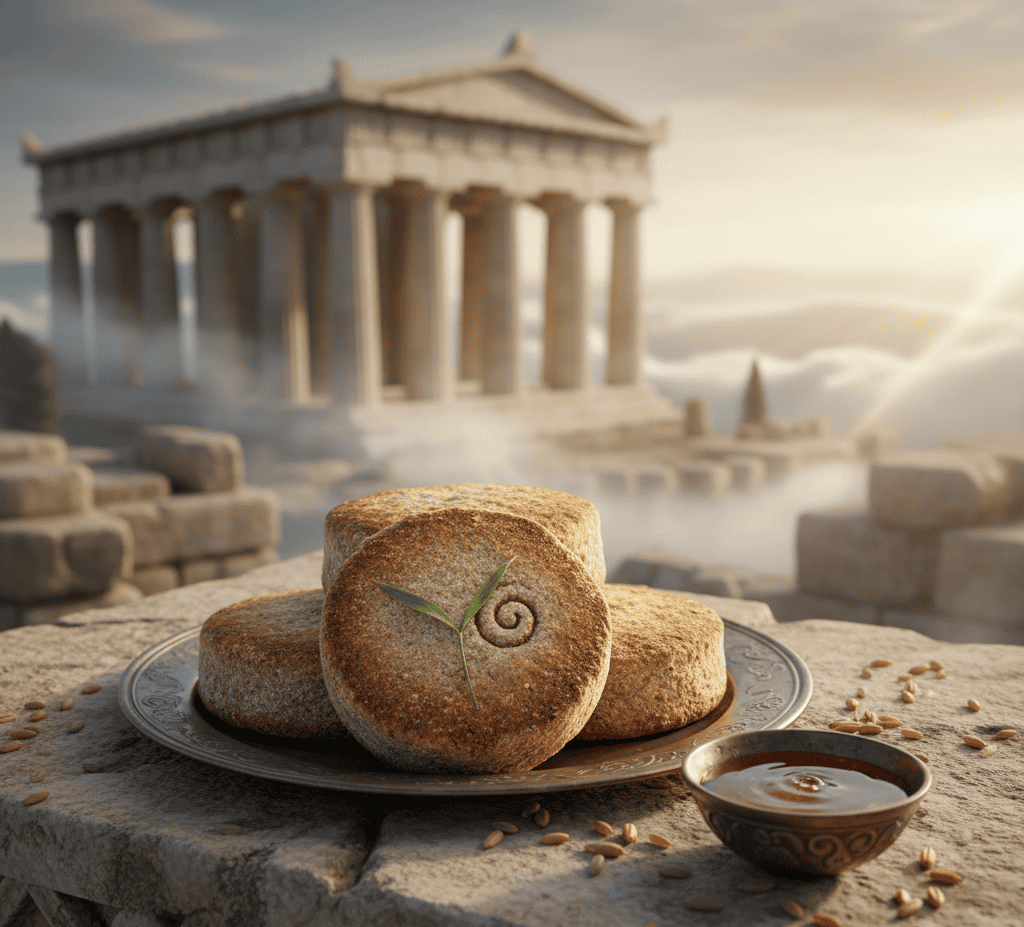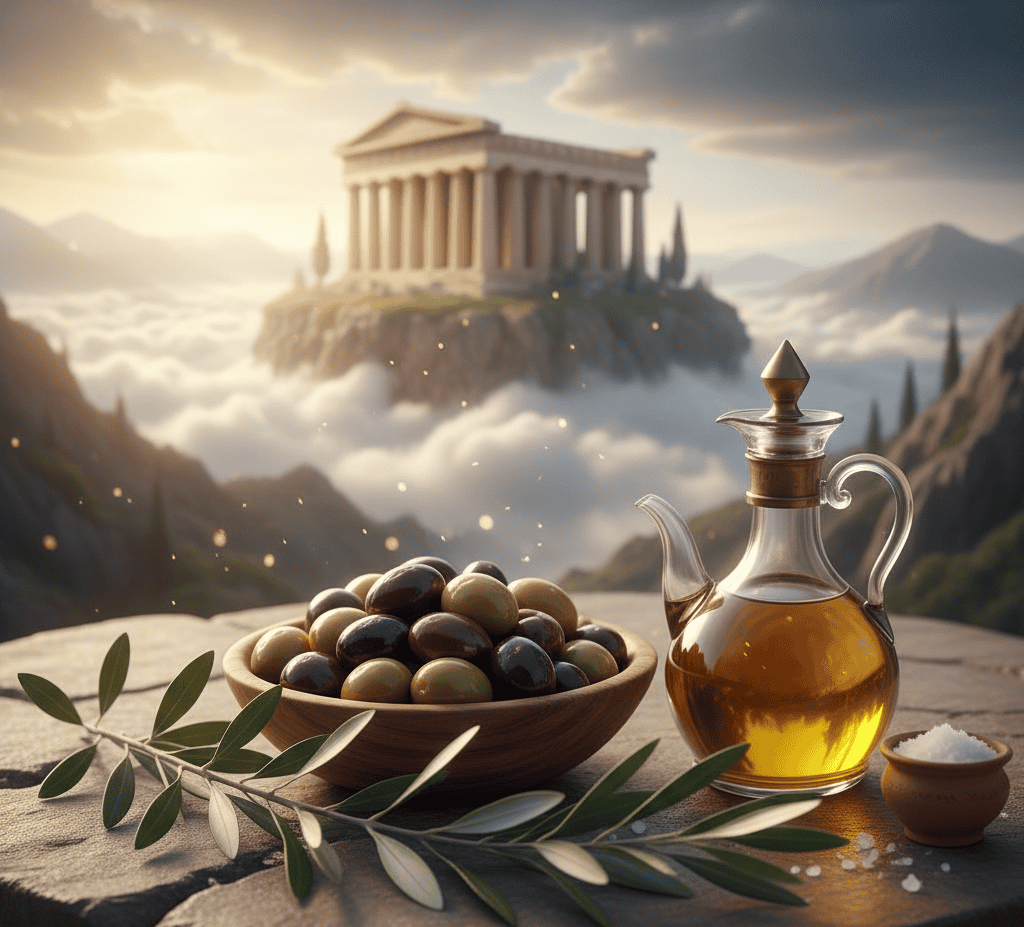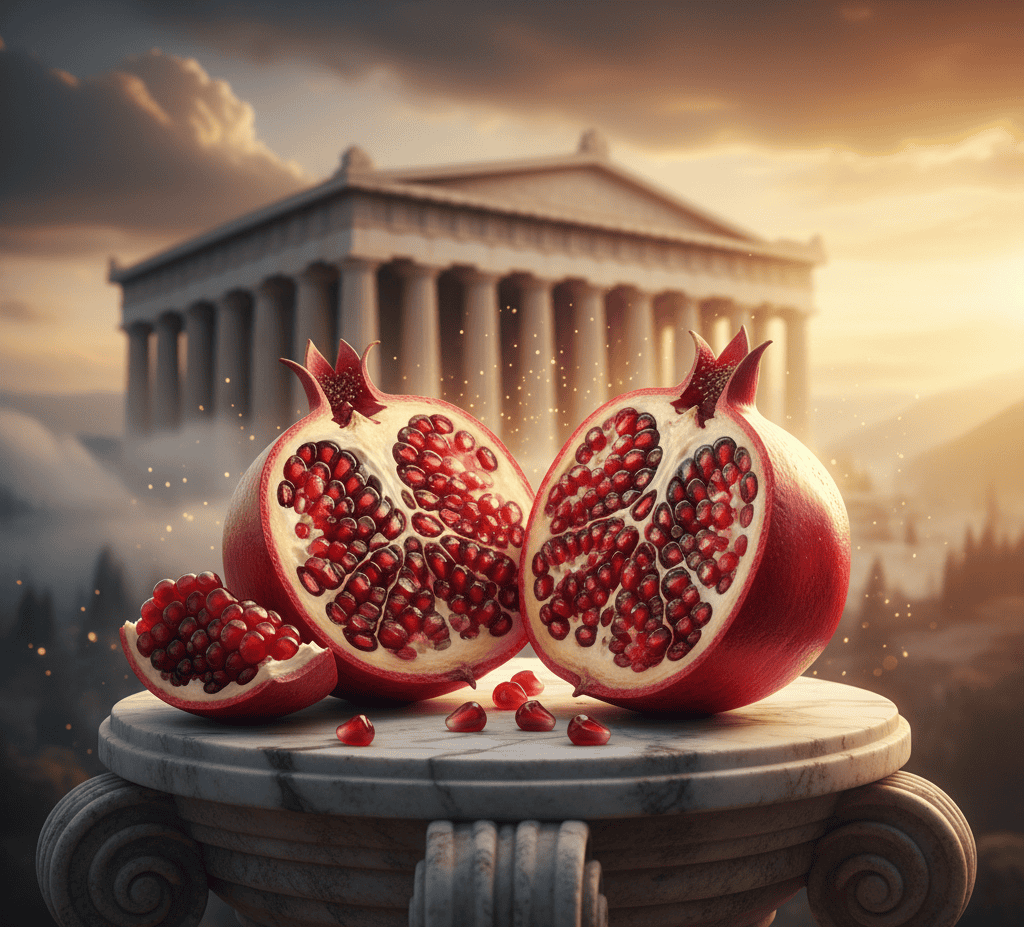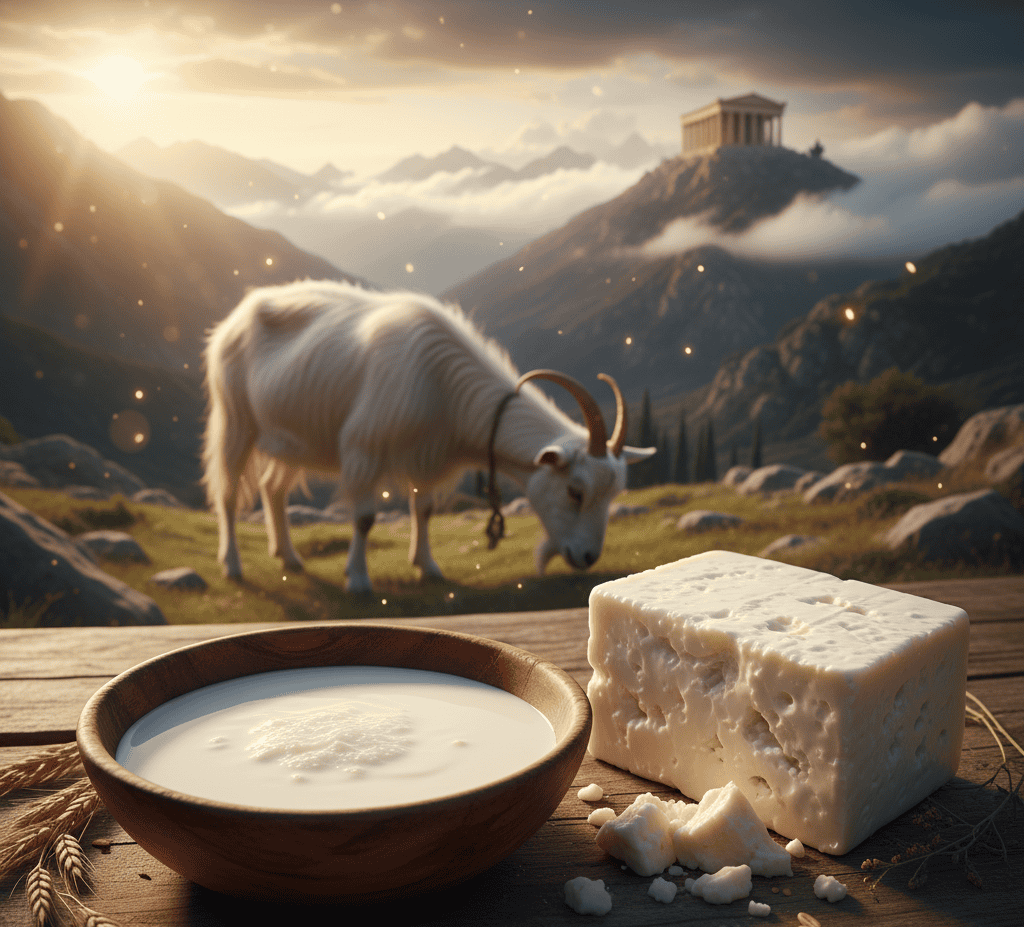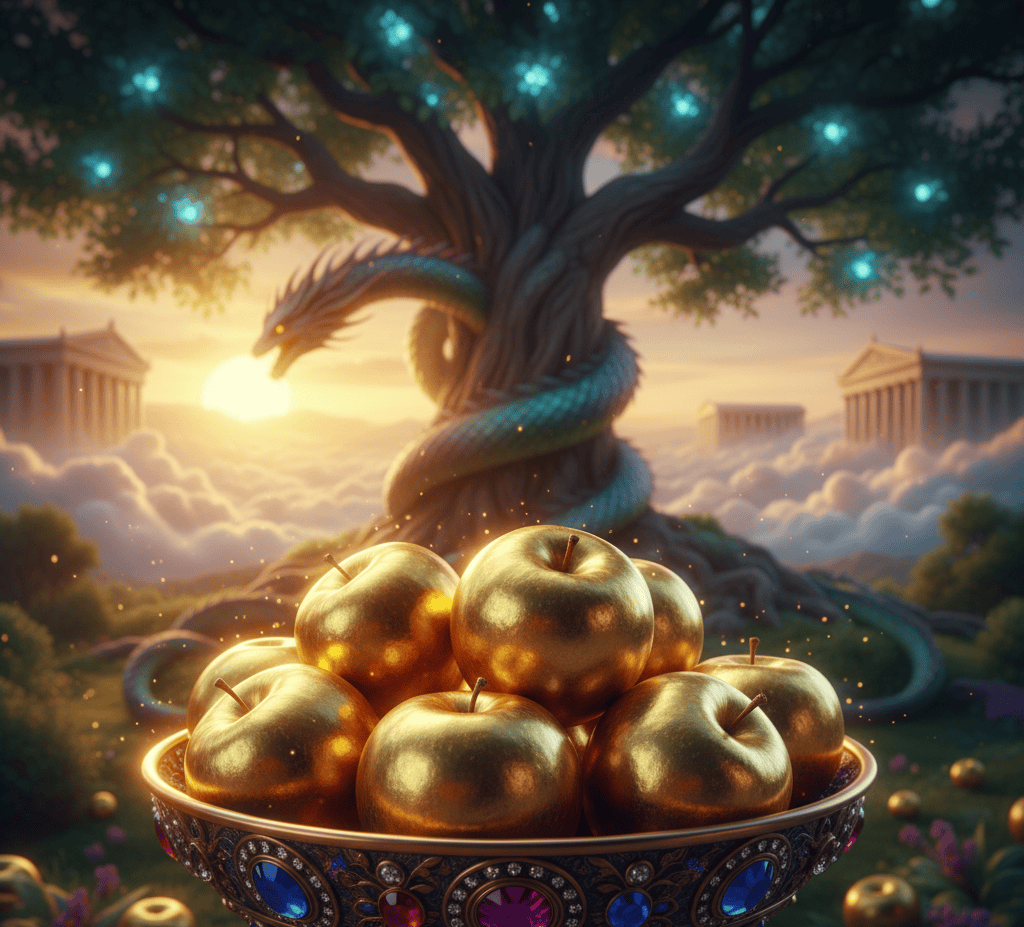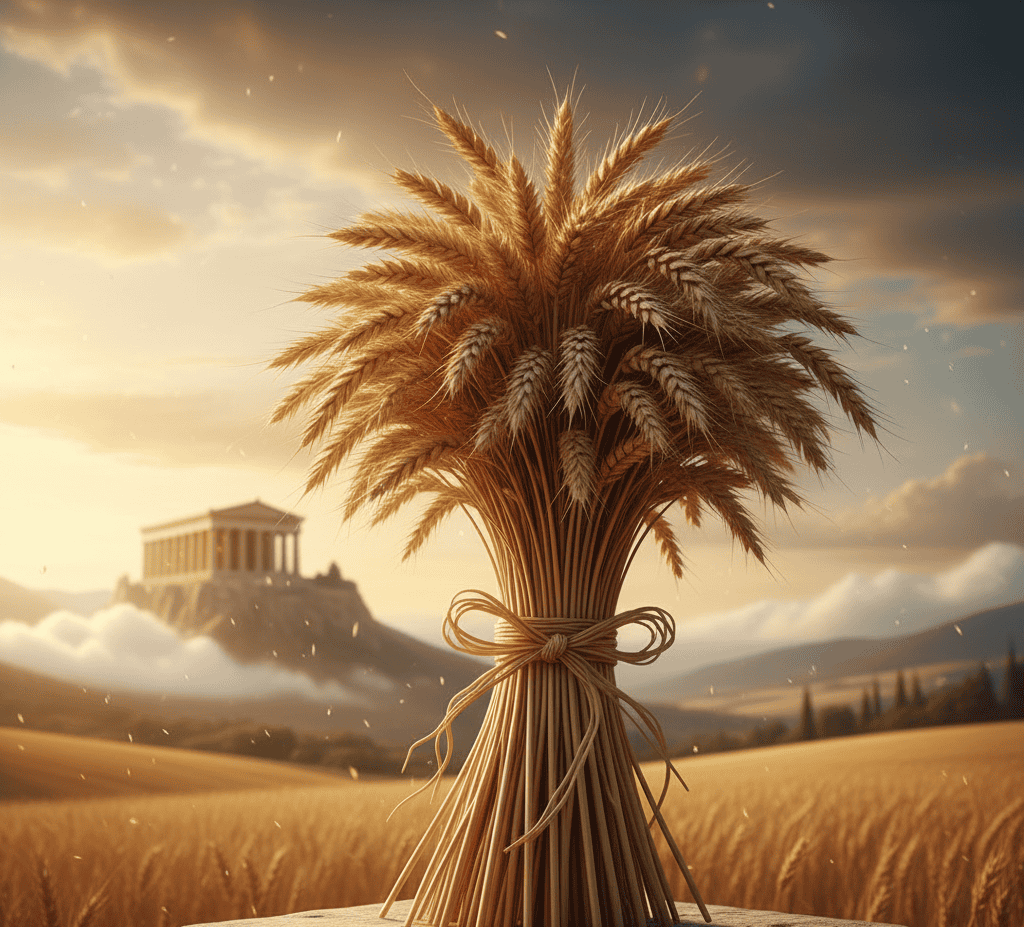When the Greeks pictured Mount Olympus, they did not just imagine clouds, marble palaces, and thrones of gold.
They also imagined endless banquets where the gods dined on the most wondrous foods. These meals were not ordinary feasts.
Every bite and sip was tied to power, beauty, and the mystery of immortality. To eat what the gods ate was to step into their world, even if only in imagination.
Let’s take a look at the sacred foods that were said to appear on the divine tables of Olympus and the myths that made them shine.
1. Ambrosia
Ambrosia was the star of the Olympian table. Poets described it as golden, glowing, and filled with the sweetness of eternity.
Mortals could only dream of it, though a few heroes were lucky enough to taste it.
In some stories, ambrosia could heal wounds instantly or make a man strong enough to stand against giants. In others, it simply granted eternal life to those who consumed it.
The very name “ambrosia” means “immortal,” which shows how much it was tied to the idea of divine existence. Imagine sitting in a hall of gods, with ambrosia passed to you on shining plates.
Even a single bite would separate you forever from the fragile world of human hunger and decay.
2. Nectar
If ambrosia was the food of the gods, nectar was their drink. Described as fragrant, golden, and impossibly sweet, nectar was said to glow in crystal cups at the banquets of Olympus.
Unlike mortal wine, nectar never caused dizziness or dullness. Instead, it refreshed the gods, giving them energy and eternal youth.
Poets often mentioned the scent of nectar on the breath of the gods. It was not just a drink but part of their very aura, as if their divine essence flowed with it.
Mortals who imagined nectar probably thought of the richest wine or honey but knew that even these could not compare.
3. Honey
Honey was considered sacred even outside Olympus, and on the mountain of the gods it took on an even greater role.
The Greeks believed bees were holy creatures, sometimes even called the “birds of the Muses,” because their honey was seen as a gift of inspiration and sweetness.
In myths, honey was often poured in rituals, offered to nymphs, or mixed into cakes for the gods.
Some even believed that honey had a divine origin. A story tells of bees guided by nymphs who brought their golden sweetness to baby Zeus, keeping him alive.
Honey was not just food but a sign of blessing, purity, and connection between the heavens and earth.
4. Sacred Barley Cakes
Barley was the lifeblood of Greek agriculture and the heart of ritual. It was especially tied to Demeter, goddess of grain, and her daughter Persephone.
On Mount Olympus, barley cakes sweetened with honey were imagined to be part of the gods’ banquets. These cakes represented fertility, abundance, and gratitude for the harvest.
During festivals like the Eleusinian Mysteries, barley and honey cakes were offered in sacred ceremonies.
Mortals believed that in eating them, they were sharing a food close to what the gods themselves enjoyed.
The cakes carried a sense of simplicity, reminding people that even the divine valued the humble gifts of the earth.
5. Olives And Olive Oil
The olive tree was one of the most precious symbols in Greek culture. It was Athena’s gift to the city of Athens, bringing peace, wisdom, and prosperity.
On Olympus, olives were not just snacks but sacred offerings tied to her divine presence.
Olive oil was also used to anoint both mortals and statues of gods, making it a holy substance.
In stories, olive oil was often connected to victory and purity. Athletes would cover themselves in oil before competitions, and kings were blessed with it during rituals.
On the table of the gods, olives represented not only nourishment but also wisdom, diplomacy, and the peace Athena embodied.
6. Wine From Dionysus
Dionysus was the god who brought wine to mortals, but he also brought it to Olympus. His vintages were said to be far beyond mortal wines, filled with joy and energy rather than drunkenness.
When the gods feasted, golden cups of Dionysus’ wine circulated, sparking laughter and celebration.
Wine in Greek thought was never just about drinking. It represented community, freedom, and connection to the divine.
Festivals of Dionysus often blurred the line between mortals and gods, as wine loosened the boundaries of ordinary life.
On Olympus, it played the same role, reminding the gods of the bonds that held them together even when rivalries burned.
7. Pomegranates
The pomegranate was one of the most symbolic fruits in all of Greek mythology. Its ruby red seeds could stand for fertility, passion, and abundance, but they also carried darker meanings.
Persephone ate only a few seeds in the underworld, yet that act bound her to Hades for part of every year.
On Olympus, the fruit carried more hopeful meanings. It represented renewal, love, and eternal cycles of life.
A single pomegranate, bursting with shining seeds, was like a symbol of beauty and possibility.
The gods might have shared it as a reminder that even immortals recognized the patterns of birth, death, and return.
8. Goat’s Milk And Cheese
The goat Amalthea played a key role in Greek myth, for she was the one who fed the infant Zeus while he hid from Cronus.
Her milk was said to be pure, nourishing, and filled with power. From that milk came cheeses that were believed to be fit for the gods themselves.
On Olympus, goat’s milk and curds symbolized strength and protection. They were foods of survival, tied to the very life of Zeus.
To imagine the gods dining on cheese is to remember that even immortals appreciated foods that brought comfort and endurance.
9. Golden Apples
The golden apples from the Garden of the Hesperides were treasures unlike any other. Guarded by nymphs and a monstrous serpent, they were said to grant eternal youth to whoever ate them.
These apples appeared in many myths, from the labors of Heracles to the judgment of Paris, where one apple marked “for the fairest” sparked the Trojan War.
On Olympus, golden apples symbolized beauty, desire, and everlasting vitality. They were not everyday food but rare treasures, glowing reminders of the gods’ endless youth.
Their shine reflected the brilliance of divine love and the danger of envy and rivalry.
10. Grains Of Demeter
Grains, especially wheat and barley, were sacred gifts from Demeter. Though they fed mortals daily, they also had a place in the divine imagination.
The gods were believed to honor the cycles of sowing and harvest, with sacred grains shared at their banquets.
Grains represented stability and the dependable rhythm of life. They showed that the gods not only lived in splendor but also cared about the earth below.
Every loaf of bread or handful of grain carried a whisper of the divine, linking mortals and gods through the act of nourishment.

I always felt a strong connection to the Divine since my birth. As an author and mentor, my mission is to help others find love, happiness, and inner strength in the darkest of times.

